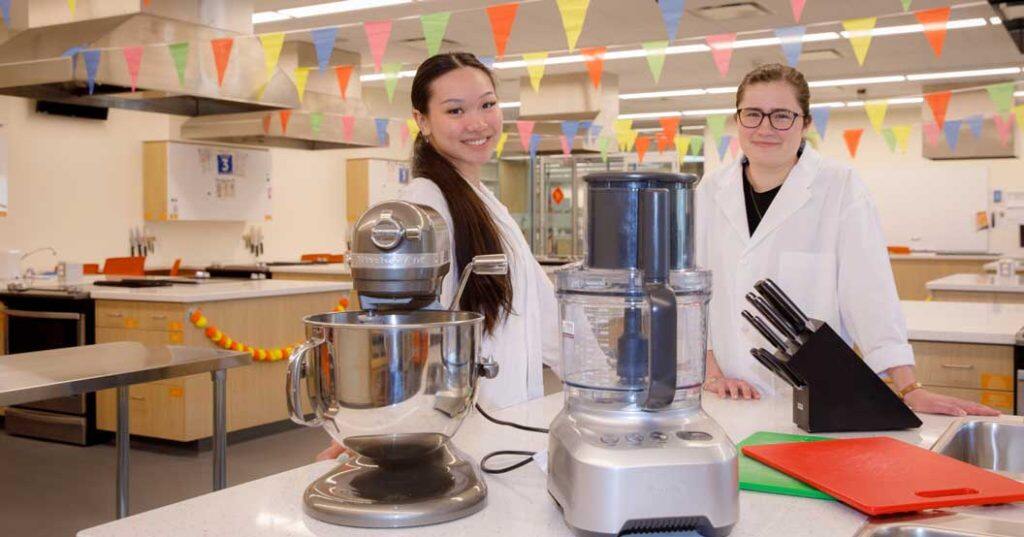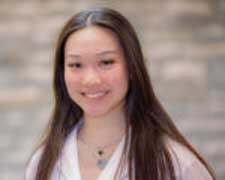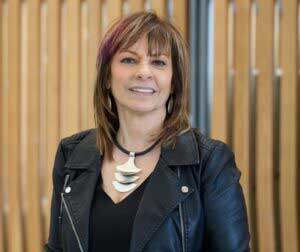

Paige Howlett was always a strong science student. She also loves connecting with people.
She found the perfect way to combine her passions – working with food.
The third-year nutrition and dietetics student is one of more than 400 students moving to the new Brescia School of Food and Nutritional Sciences, established May 1 under Western’s Faculty of Health Sciences.
Howlett will start her final year at Western in the fall, with hopes to become a registered dietitian soon after.
“It’s the best of social science and science. You have to apply physiology and chemistry with counselling people, using critical thinking skills to try to improve someone’s quality of life,” she said.
Plus, how often do you get to learn about new cuisines and share food with your classmates while at school? Howlett said the food labs she took were a highlight.
She’s enthusiastic about the next chapter at Western.
“I am excited and optimistic for next year. I know we’ll be in good hands,” Howlett said.
She has already embraced her new campus community, taking on a leadership role as a “soph” in health sciences for fall orientation week.
Since she’s already attended Western science classes as part of her program, Howlett feels she will have the “best of both worlds” next year, taking courses on main campus while continuing to utilize state-of-the-art food laboratories and a commercial kitchen at Brescia’s former campus, now part of Western.
The Brescia School of Food and Nutritional Sciences will offer two programs: foods and nutrition for undergraduate and graduate students, plus family studies and human development at the undergraduate level.
“We’re bursting with ideas. I feel very passionate and optimistic that there are a lot of good things on the horizon,” said Danielle Battram, acting director of the new school.
New interdisciplinary opportunities
Joining the Faculty of Health Sciences opens a wealth of opportunities – both for students coming from Brescia and those already studying health sciences at Western, Battram said.
They’re joining a faculty that now boasts seven different schools – communication sciences and disorders, food and nutritional sciences, health studies, kinesiology, nursing, occupational therapy and physical therapy – with nearly 5,000 undergraduate and graduate health sciences students.


“Health professionals don’t work in a vacuum. We work together for the best care for our patients and clients. This now affords us the opportunity to explore more collaborations across health sectors and bring all our best practices together,” said Battram, a registered dietitian.
As an undergraduate, Battram initially planned to pursue medical school, before changing directions and opting instead to study nutritional science. Students on a similar path can explore multiple related fields to figure out what aspect of health speaks to them, she said.
“That’s the power of having all these different health professions under one roof.”
The addition of the Brescia School of Food and Nutritional Sciences will make the Faculty of Health Sciences one of the broadest interdisciplinary health sciences faculties in Canada.
“It’s an exciting time to be in the Faculty of Health Sciences at Western. We’re thrilled to welcome Brescia faculty, staff and students to the new school,” said Jayne Garland, dean of the Faculty of Health Sciences.
“Not only will the school add expertise, but it will also create opportunities for collaboration and open doors for students to explore other areas of health and wellbeing they may never have considered.”
Battram said faculty members, staff and students are already feeling welcomed.
“Within about a week of being told about the integration, we met with Dr. Garland and the overwhelming feeling was welcome home and ‘where have you been?’” -Danielle Battram, acting director of the Brescia School of Food and Nutritional Sciences
“We are very excited about being integrated into health sciences. It is a faculty with a lot of different health professionals, which means we’re understood,” Battram added.
Real-world relevancy
Scientific expertise in the worlds of nutrition and family studies is growing increasingly important.
Misinformation is rampant on social media and elsewhere as people look for trusted sources on issues like healthy eating, parenting and emotional development.


The Brescia School of Food and Nutritional Sciences has faculty members with a wide range of research to equip students with the skills they need to pursue any number of careers.
Melodie Yeung wasn’t sure exactly what path she’d take when she entered the foods and nutrition program four years ago. Now, she’s graduating and moving on to a master’s program in food science.
“It’s a very unique program. It immerses you in a different side of food research,” she said of her undergraduate degree.
Yeung plans to study ways to combine proteins, with hopes of increasing the protein content in dairy products.
She said she gained key skills in a class on food product development, where students create their own product and take it through trials, sensory evaluations and marketing plans.


“You got to speed-run, essentially, a product development process to mimic what happens on the corporate side with foods,” Yeung said.
For Howlett, the student on the road to becoming a dietitian, the program is so attractive because it’s applicable to real life. For her, the key is cutting through the noise.
“There’s so much incorrect information out there on nutrition, it’s very convoluted. You need people who are presenting correct, evidence-based information,” she said.
The same goes for crucial human development topics, made even more relevant amid the challenges presented by COVID-19, Battram said.
‘A very special program’
Professor Roula Hawa, undergraduate chair of the family studies and human development program, said there are only a few places to study that field in Ontario.
“It’s a very special program. It’s a very interdisciplinary field, and that’s what makes it strong,” she said.
“It’s the study of human families, issues of family life and individual development. It’s a social science that draws upon many other fields, like sociology, psychology, anthropology, education, gender studies and health. We follow a lifespan approach, from birth to death.”


The program is inclusive by nature, building knowledge on families of all shapes, sizes and backgrounds. Students also learn about issues affecting families, such as poverty, gender-based violence, child abuse, mental health challenges and substance use, among others.
“We look at the child not just as an individual, but how the child interacts within the family and how the family interacts within the broader systems of society,” Hawa said.
Students are taught to consider the social determinants of health.
Hawa has undergraduate and graduate level training in public health, family studies and education. She has taught family studies at the high school and university level, including undergraduate students and teacher candidates who wanted to be certified in family studies when they entered the classroom.
Many students in the Western program hope to become teachers, but family studies and human development also offer a foundation for many other career paths.
“From child-care to support services for older adults to master’s research in education, health or social work, the field and the jobs for which it prepares students are crucial for the health and wellbeing of individuals and families across the lifespan and for Canada’s aging population,” Hawa said.
She hopes to introduce new majors and minors, such as a focus on child, youth and family health, and pursue possible certification, in addition to new experiential learning opportunities, practicums and internships.
“We always say the family studies and human development program is the hidden gem. Now, we’re being launched at Western and I feel like the sky is the limit,” Hawa said.






































